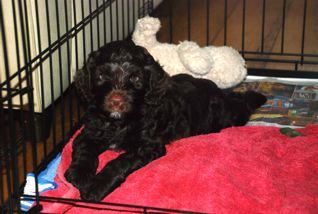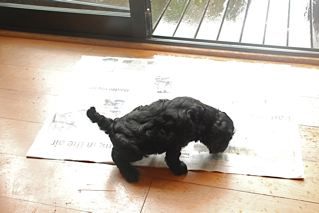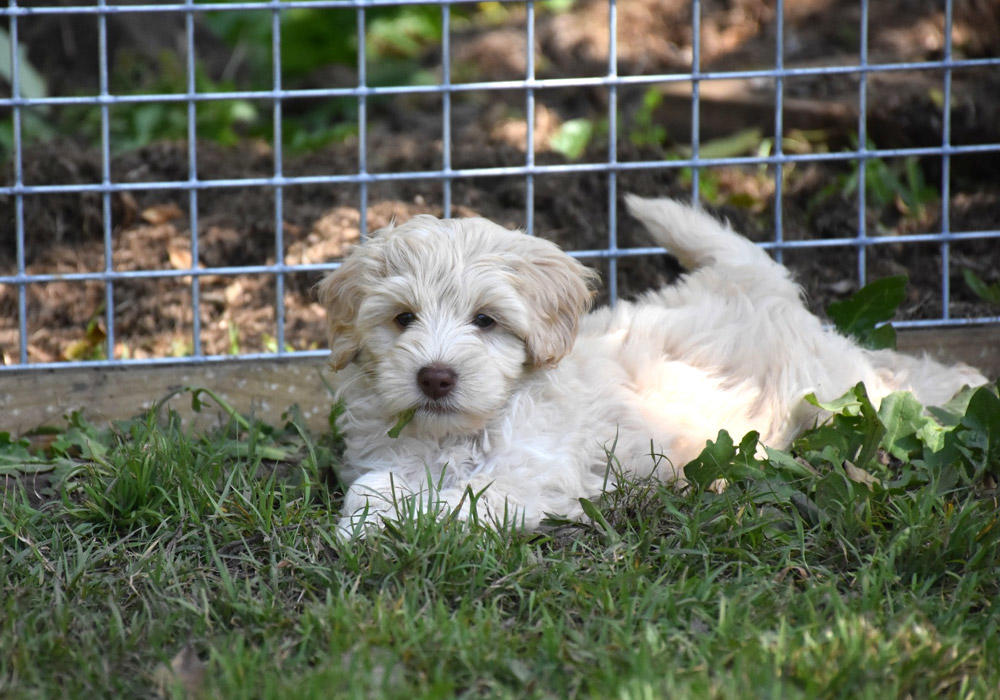There are some basic items that you will need for your new pup:
- Heavy based feeding bowls (three are good – one for food and two for water… one for inside and one for outside)
- Some bedding that is not easily chewed (an old towel or two will do to begin with)
- Puppy food – we have moved over to feeding RAW. Please chat to us about diet and we will make recommendations if you decide raw is not for you and your dog
- Some puppy toys and treats (pre-loved kid’s soft toys are far more durable than puppy toys from the pet store – avoid hard plastic eyes and weighted beads in soft toys)
- Cleaning up stuff: newspaper, paper towel or old cloths, white vinegar which neutralizes the ammonia in urine or better still, an enzymatic product such as ‘Wee Off’ and ‘Spray and Wipe’ or equivalent
- And maybe a puppy kennel or crate depending on where your puppy will sleep
Apart from the expected feeding, sleeping and grooming bits and pieces you will need a couple of other things will help your puppy adjust to its new environment.
Your Amalie Labradoodle puppy
Your puppy has been born and brought up in our home. Your pup has been well socialised, handled daily and has begun basic toilet, crate and obedience training. Puppies have been exposed to young children, other animals, car travel and basic household noise and have all spent time alone in their crate to help ease the transition to their new homes.


If using a crate begin using it straight away – you can feed your pup there or help him to get used to the crate by giving him a chew treat (like a pigs ear) or toy (soft toy or raggy bone) to settle with. Make it his “safe place” or den.
The best toilet habits are created by being outside from day 1. He’s been outside for the last few weeks and has good habits, toileting far away from his sleeping place. If he can’t be outside, use a pet loo / newspaper by the door. Clean regularly and introduce him to it each time he wakes up and after eating.
What to expect in the first few days
Despite the socialisation and training that your puppy has had, leaving the litter will challenge him and I would expect there to be unsettled periods in the first few days.
Some things that may help are:
- keeping diet consistent
- being prepared for a few spills, puddles and accidents
- being prepared for teething
- being able to help your pup adjust to being the only pup by ensuring time alone in short bursts from the very first day
- having some raw meaty bones, toys and training treats on hand
- and if you have other pets – helping them work out who is who and what is what – “Lets Talk Dog” is a good starting point | Liam Perk Foundation

